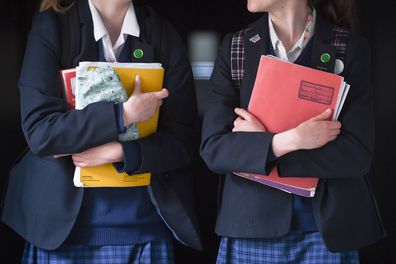Lilit Chilingaryan (11) | STAFF REPORTER
Canada has a variety of schools that offer stellar education, but each may cater to their students differently. Some schools follow tailored pedagogical curricula, others accommodate special education needs, and yet others offer prestigious programs (yes, like the International Baccalaureate).
In general, the schools can be divided into two broad categories based on their relationship and dependency on the government: private and public schools. The former is not operated by the government and is for the most part independent of its standards, policies, and financial aid, whereas the latter is government-instituted and publicly funded by taxes.
This bare difference in government dependency does not translate into their differences as schools, but the implications certainly do. These schools can be compared by curriculum, environment, quality of education, staff/teachers, cost, and influence on student success.
By comparing these factors with the student’s needs in mind, parents can often come to the conclusion of which one their child should be sent to. However, on a fundamental level, it is difficult to determine which one is truly “better.” Over the years that dilemma has been debated as well, and will be discussed later on.
Though public schools are the popular choice, many parents choose to direct their children elsewhere; but why would parents consider private schools over public ones? Private schools are reputed for yielding student success in academics and life, with their students consistently scoring higher on standardized tests. The extent of the school’s contributions to these effects, of course, is disputable. Nevertheless, they do indeed provide in-depth curricula, have small student-teacher ratios, and foster a good environment.
Firstly, private schools are reputed for cultivating a comparatively safer, more respectable environment that mirrors a tight-knit community: “Private schools experience less physical bullying, lower rates of disciplinary problems, and increased school safety than public schools” (Shakeel and DeAngelis 428). This aspect is propagated by parental involvement in the school community, teacher expectations, and a common point of unity among the peers, such as religion or values in general.
On the other hand, such schools are quite expensive, ranging from $10,000 (schools with religious affiliations) to over $70,000 (for boarding). Public schools, however, provide education at essentially no cost. This clashing difference does divide the families who are able to afford such schools between those that cannot.
However, those who attend public schools are not necessarily at a disadvantage; the money that would have otherwise been spent on private school could be directed towards other resources or opportunities that could offer advancement, eg. tutoring, online resources, books, etc. As well, public education offers other benefits, such as diversity in the student body and the likelihood of having school-friends in the neighborhood. For many, public schools are comparatively still a very good option.
However, there is a yet stronger allure for private schools: their sound education. Private schools provide an education centered on enriched curricula that are taught by teachers who hold professional degrees in their field. The low student-teacher ratio also allows for each student to receive tailored guidance and proper attention, which translates to success in academics and learning skills later on.
For many parents, these are signs that the school provides high-quality education to its students. With an abundance of data depicting the unparalleled success of such students on standardized tests, college admission, etc., such positive effects are attributed to independent schooling.
But this is where the advantages of private schooling become blurry, and the approach for determining if it truly offers a better education is uncertain. Though private schools, which until now have exhibited more benefits than public schools, have indisputably beneficial aspects, these may not be the sole catalysts of student success nor the sole upholders of private school’s reputation.
Simply put, do private school students outperform those from public schools due to their schooling, or rather their socioeconomic factors? Do private schools foster successful students or attract them to attend?
A study conducted by Statistics Canada in 2015 aimed to discuss just these questions, evaluating student achievement and relating it back to the school’s resources and practices as well as socioeconomic and domestic factors (parental education, number of books in home, rural or urban residence, etc.).
Overall, the study found that socioeconomic and domestic factors are more conclusive in determining student achievement rather than the school itself (Frenette and Chan 7). As well, there are many cases where the supposed success of private schools was in reality (at least partly) due to self-selection: many private school’s admission requirements ensure that students already set for success are admitted (14).
Therefore, though private schools provide a good environment for academic acceleration, the student success that follows is not wholly attributed to their involvement but to other factors as well.
In conclusion, there are a variety of factors that come into play when deciding which school to attend — and there is no definitive answer. Depending on what one expects to gain from school and what one values, the choice will differ. Of course, both types of schools yield promising results, each using their own strengths, whether it is in curriculum, diversity, environment, affordability, or teacher dedication.
Ultimately, it comes down to the perspective through which these factors are viewed. However, it should be kept in mind that neither school can guarantee to mold any student into the parent’s expectations just because statistics corroborate such a result; many factors come into play in success — and one of them is the student themself.


